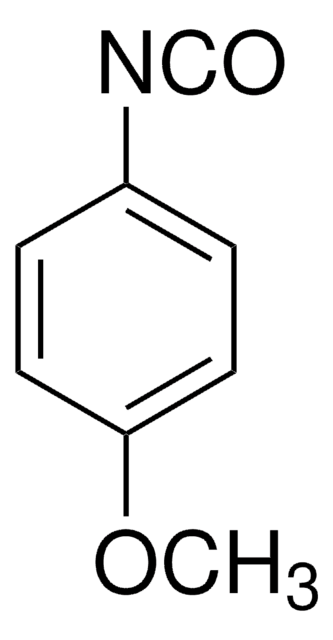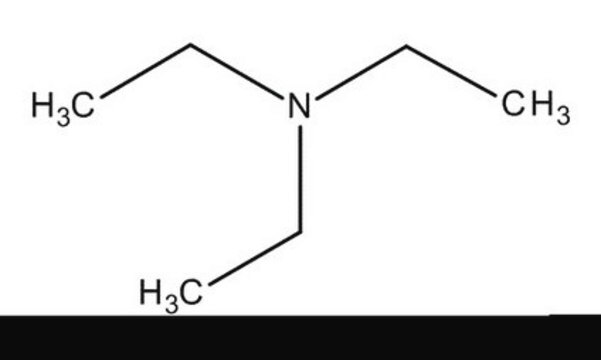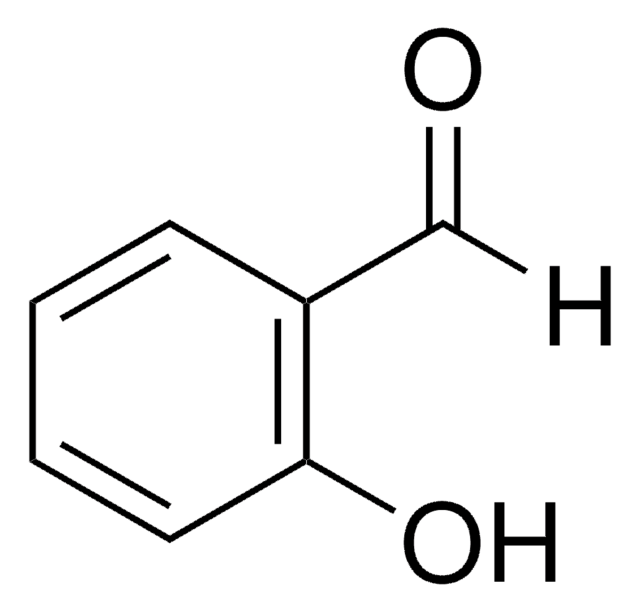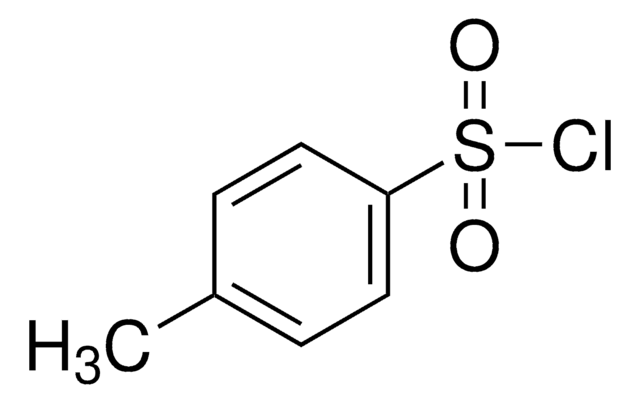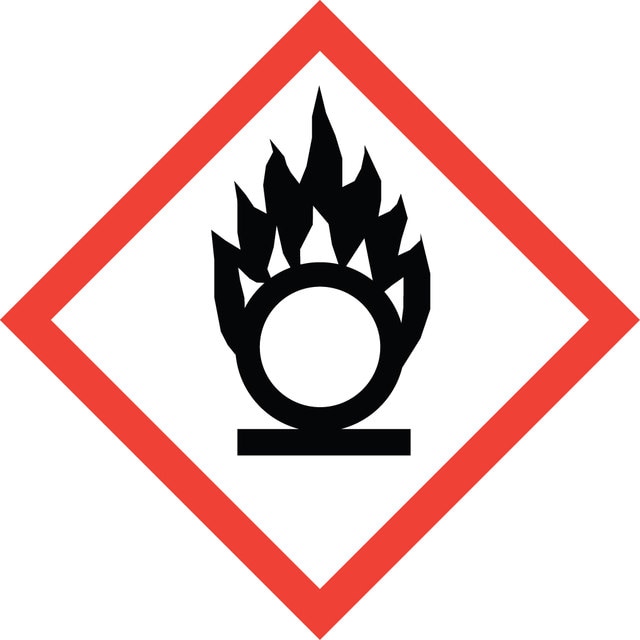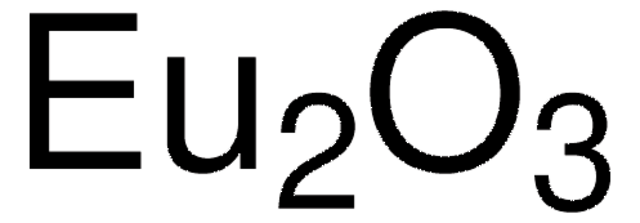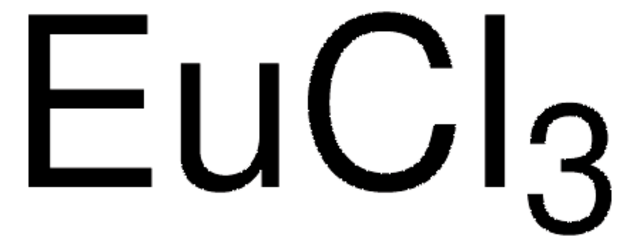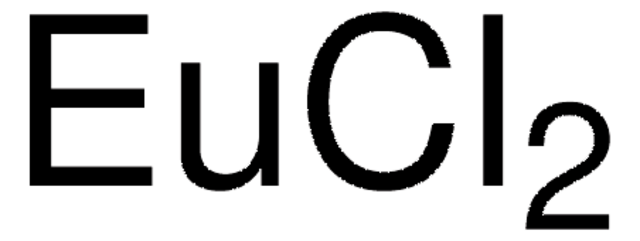254061
Europium(III) nitrate hydrate
99.99% trace metals basis
Synonym(s):
Europic nitrate hydrate, Europium trinitrate hydrate
About This Item
Recommended Products
Quality Level
Assay
99.99% trace metals basis
form
solid
reaction suitability
reagent type: catalyst
core: europium
impurities
≤150.0 ppm Trace Rare Earth Analysis
SMILES string
[Eu+3].[H]O[H].[H]O[H].[H]O[H].[H]O[H].[H]O[H].[O-][N+]([O-])=O.[O-][N+]([O-])=O.[O-][N+]([O-])=O
InChI
1S/Eu.3NO3.5H2O/c;3*2-1(3)4;;;;;/h;;;;5*1H2/q+3;3*-1;;;;;
InChI key
BBGDGFQCQRFYCP-UHFFFAOYSA-N
Related Categories
Application
- A novel strategy for the synthesis of samarium/europium-metal organic frameworks: This study explores the utilization of Samarium and Europium nitrate hydrates in the development of metal-organic frameworks for luminescent sensing. These frameworks are employed for detecting substances like acetone, Cr3+, and Pb2+ in real samples, showcasing potential applications in environmental monitoring and safety (Syed, 2024).
Signal Word
Danger
Hazard Statements
Precautionary Statements
Hazard Classifications
Eye Irrit. 2 - Ox. Sol. 2 - Skin Irrit. 2 - STOT SE 3
Target Organs
Respiratory system
Storage Class Code
5.1B - Oxidizing hazardous materials
WGK
WGK 2
Flash Point(F)
Not applicable
Flash Point(C)
Not applicable
Personal Protective Equipment
Certificates of Analysis (COA)
Search for Certificates of Analysis (COA) by entering the products Lot/Batch Number. Lot and Batch Numbers can be found on a product’s label following the words ‘Lot’ or ‘Batch’.
Already Own This Product?
Find documentation for the products that you have recently purchased in the Document Library.
Customers Also Viewed
Articles
Spectral conversion for solar cells is an emerging concept in the field of photovoltaics, and it has the potential to increase significantly the efficiency of solar cells. Lanthanide ions are ideal candidates for spectral conversion, due to their high luminescence efficiencies and rich energy level structure that allows for great flexibility in the upconversion and downconversion of photons in a wide spectral region (NIR-VIS-UV).
The prevailing strategies for heat and electric-power production that rely on fossil and fission fuels are having a negative impact on the environment and on our living conditions.
The rare earth elements impact nearly everyone in the world. All of the people living in advanced technological countries and almost all those living in third world countries utilize the rare earths in their everyday living—the car that one drives (gasoline is refined from oil using rare earth catalysts and catalytic converters reduce the polluting emissions from the automotive exhaust), watching the news on TV (the red and green colors in TV screens), the telephones and computers we use to communicate (the permanent magnets in speakers and disc drives), just to name a few examples.
Our team of scientists has experience in all areas of research including Life Science, Material Science, Chemical Synthesis, Chromatography, Analytical and many others.
Contact Technical Service
